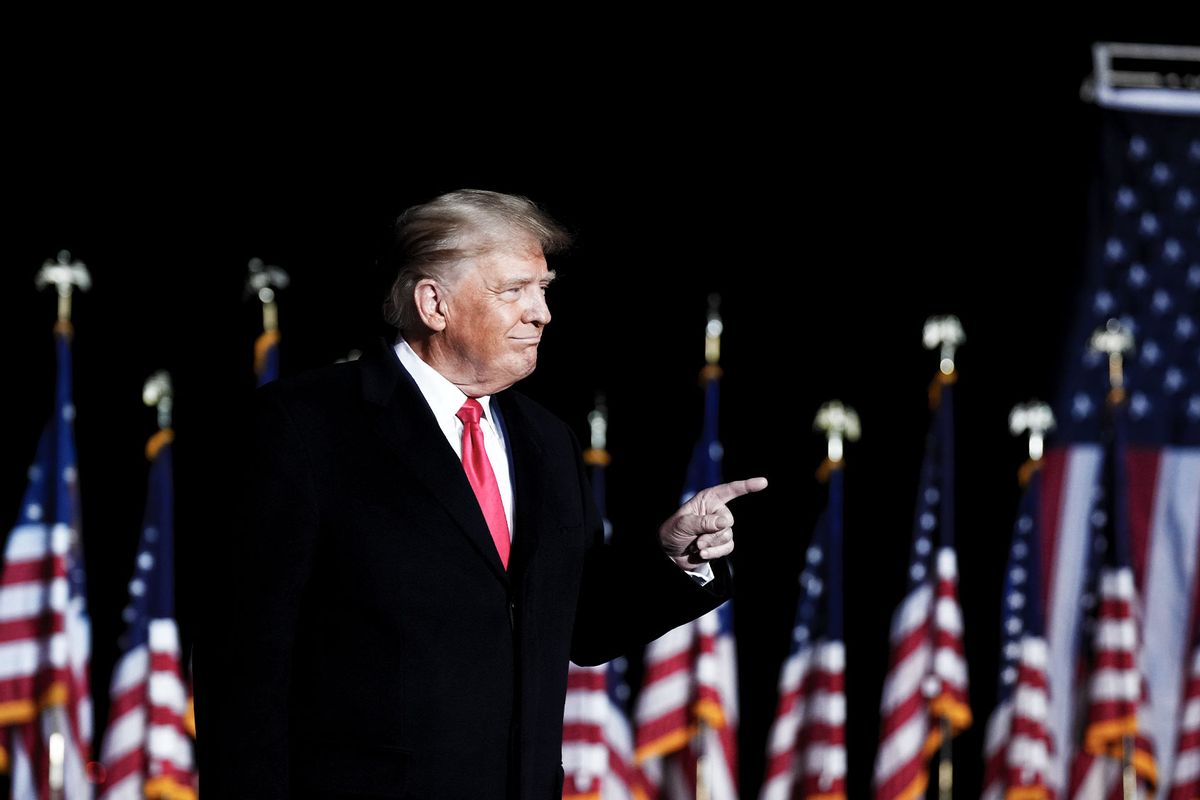Expert: Supreme Court could bail out Trump in Fulton — and leave co-defendants “holding the bag”

Though the Fulton County case against former President Donald Trump may be “pardon-proof,” the Supreme Court could potentially intervene if he wins the 2024 presidential election.
Trump or any other potential Republican president would not be able to issue pardons because it is a state matter and Georgia’s constitution prevents the state’s governor from issuing pardons in the case. Only a state pardon board can issue pardons, and requests can only be made five years after a sentence is served.
But while the case is pardon-proof, the Supreme Court “may well hold a sitting president is immune from trial” or a conviction if he wins the election, New York University Law Prof. Ryan Goodman wrote on X, formerly Twitter. The result would be “18 co-defendants left holding the bag” while Trump would be immune for four years if he is elected, he wrote.
“Another reason for co-defendants to flip,” he added.
Goodman explained that the Republican-packed Supreme Court could codify the Justice Department’s longstanding position that sitting presidents are immune from prosecution. Though legal scholars have argued that the DOJ position is “wrong,” it is “difficult to know how SCOTUS would rule,” he wrote.
Trump may also seek to remove the case to federal court, which would allow him access to a more favorable jury pool and could increase his chances of drawing a federal judge that he appointed. Former White House chief of staff Mark Meadows, who was charged alongside Trump for racketeering and other alleged crimes, became the first defendant to try and move his case to federal court in Atlanta on Tuesday.
Meadows’ attorneys cited a law that allows federal officers to remove a case from a state court to a federal court as long as they’re acting “under color” of their office. Meadows’ legal team in a 14-page filing argued that their client had the right to change venues because the alleged criminal conduct “all occurred during his tenure and as part of his service as chief of staff.”
Trump’s lawyers could ultimately argue a similar defense, suggesting that the ex-president was ensuring the integrity and fairness of the federal election process as part of his role as president of the United States.
“It’s going to come down to what a judge thinks…” Eric Segall, the Kathy & Lawrence Ashe Professor of Law at Georgia State University, told Salon. Trump could claim “he was the president of the United States and that the election was fraudulent” and “to have been doing his job in making sure the election results were certified in a way that is fair, legal and constitutional,” he explained.
Even though it’s clear Trump wasn’t acting in his duties as president, but instead a candidate for the president of the United States, his lawyers could still claim that the former president was acting “under color” of his office, Segall added.
Trump may be able to meet those conditions, Atlanta defense attorney Andrew Fleischman told The Atlanta Journal-Constitution.
“The former president is going to claim that he was trying to enforce some sort of federal law” when he pressured Georgia officials to overturn his election loss, Fleischman told the newspaper. “And then the only question is: Is it colorable?”
As part of the process, Trump’s lawyers would have to file a motion of removal in federal court, which would likely be appealed in the 11th U.S. Circuit Court of Appeals in Atlanta. Then, that court’s decision could be appealed to the U.S. Supreme Court.
Want a daily wrap-up of all the news and commentary Salon has to offer? Subscribe to our morning newsletter, Crash Course.
Another aspect of the argument that experts raise is whether Trump would even qualify as a “federal officer.”
“It’s unlikely that Trump will be able to get the case moved to federal court,” Neama Rahmani, former federal prosecutor and president of Los Angeles-based West Coast Trial Lawyers, told Salon. “Criminal removals are rare and usually only happen when the defendant is a federal officer and is acting in his or her official capacity. However, the Supreme Court has ruled that campaigning is not an official act so this likely won’t work for Trump.”
Trump attempted to move his case from New York state court to federal court after he was charged with falsifying business records to cover up an affair with adult film star Stormy Daniels. But U.S. District Judge Alvin Hellerstein denied his request.
Even if Trump is able to remove his case to federal court, he would still face state charges that are pardon-proof and Fulton District Attorney Fani Willis would likely remain the prosecutor in the case.
“Even if this is removed to federal court, DA Willis and her team could be sworn in as special US [attorneys] so they could continue to prosecute,” explained Atlanta Journal-Constitution reporter Tamar Hallerman. “It would still be a case looking at state, not federal law. So presidential pardons still would not apply. The biggest difference would be the jury pool, which would presumably be more conservative… Would also get a federal judge.” Another difference would be that there is no cameras in the courtroom, she wrote. “Fulton Superior Court, depending on the judge, allows cameras.”
Read more
about the Fulton case


